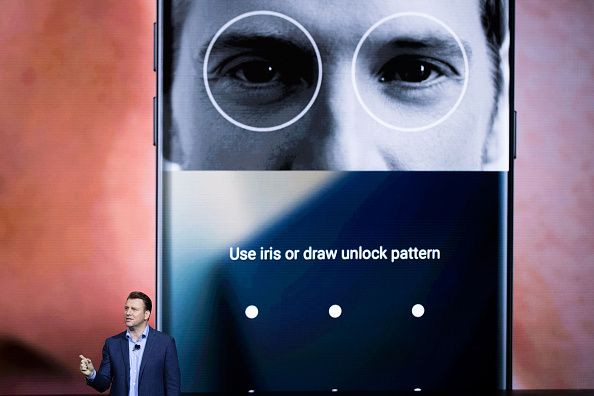Samsung Galaxy Note 7 Iris Scanner Explained: Why New Mobile Security Feature Is Considered A Game Changer

For the past two days, Samsung has been talking about its Galaxy Note 7’s iris scanner on its online newsroom, highlighting the reasons why this new mobile security feature could be a big game changer in the mobile industry.
Just yesterday, the South Korean-headquartered company discussed how the iris scanning technology is making Samsung Pass even more secure. Samsung Pass is part of Knox, the comprehensive security platform of Samsung’s recent handsets. Pass previously centered on fingerprint recognition via the fingerprint scanner as a means of enhancing the identity verification process of the phone itself and certain apps.
With the addition of the iris scanner, Samsung claims that the Note 7’s security has reached the ultimate level thanks to this advanced biometric authentication that does not require IDs or passwords for identity authentication. Samsung stated in the same post that Samsung Pass is more convenient than ever, since the iris scanning technology the Note 7 has is more accurate in authenticating a user’s identity with just a glance.
Samsung also mentioned that the iris scanner works with Samsung Internet 4.2, the updated default browser for Galaxy devices. The biggest competitor of Apple indicated that with the new mobile feature, Galaxy Note 7 owners can navigate password-protected websites quickly and safely via Samsung Internet.
Another practical application of the iris scanner is in online banking transactions. Samsung has partnered with several banks, so their apps can utilize the iris scanner and the improved Samsung Pass in enhancing users’ mobile banking experience.
Early this month, Android Central reported that Bank of America, Woori Bank, US Bank, Shinhan Bank, City and KEB Hana Bank were exploring the practicality of incorporating the iris scanning technology to the mobile banking service they provide.
In an editorial post by Insights & Strategy’s Patrick Moorhead published on Samsung's website on Thursday, the author stated that Samsung introduced the iris scanning technology with its Galaxy Note 7 at a time when the demand for tougher protection is skyrocketing. Moorhead cited several things that put the security of consumers at risk, such as reused passwords, fraudulent phone calls and phishing emails, to make his point.
Moorhead also recognized that biometric security has been part of the mobile industry since 2011, but it is only until recently when the miniaturization of technology has enabled the South Korean company to seamlessly incorporate iris scanning into a smartphone.
In a market research report published on MarketsandMarkets that Samsung also cited in its post, iris recognition technology is expected to be a big part of the mobile industry as it moves forward. The report even mentioned that because of the iris scanning technology’s accuracy, ease of use and difficulty to forge, it is bound to grow and develop in many areas, like in governments, the military, banking and finance, travel and immigration and many more.
Samsung’s iris scanner works by scanning the iris or the irises of a user for patterns, and it codes these patterns in digital form before saving them in Knox’s TrustZone. While setting up this feature and registering iris information take a few minutes to accomplish, its application is incredibly fast and easy that unlocking the Note 7 or authenticating user identity takes just a couple of seconds.
Because the human iris is so complex, iris scanning is said to promote a higher level of security than fingerprint scanning. Samsung even stated in a separate post that iris scanning is “one of the most secure and reliable biometric techniques available today” because the patterns of the human iris is impossible to replicate.
Given the advanced iris scanning technology’s advantages, Moorhead believes that the Galaxy Note 7’s mobile security could influence other companies in changing the landscape of current mobile security platforms and pave the way to the introduction of “a new generation of more secure mobile devices.” Finally, Moorhead predicts that iris scanning technology will become the standard of mobile security in the near future.
© Copyright IBTimes 2024. All rights reserved.





















